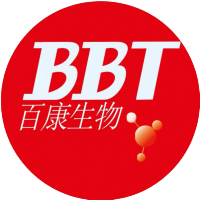Advance and shortage between Stone Wash and Enzyme Wash
Advance and shortage between Stone Wash and Enzyme Wash
By Baico Biotech丨Textile Enzyme丨LCB-HK-01
In the processing of denim garments treatment, the factories add pumice and jeans to the front or barrel machine. During this process, the feel and appearance of the jeans will be changed. Through friction with pumice, grains and fluff are produced on the surface of fabric. Forming the unique abration and worn style of the denim.
The traditional stone wash process has some shortcomings. Hard pumice may cause excessive wear during the friction and collision with the jeans, causing damage in specific locations such as pockets. During the stone wash process, the pumice is constantly worn away by friction with the front machine and denim fabric, and dust that is harmful to the human body is generated during the production process. Besides, the direct contact between the pumice and the inner wall of the equipment will cause mechanical abration, thereby shortening the service life of the equipment. Pumice residues mixed with dyes and other textile auxiliaries enter the processing wastewater, increasing the cost of sewage treatment.
Using cellulase to treat jeans for wear is an emerging process that takes into account both environmental protection and cost-effectiveness. Cellulase can hydrolyze the fibers on the surface of the fabric in a directional manner, causing the colored dyes attached to the fibers to fall off, thereby producing grains and wear effects. As a protein, cellulase will not cause damage to the human body or equipment. Baico Biotech , BBT Enzyme have special granular denim abration enzyme series NEF2101,NEF2200+,NEF2103. Granular Stone Wash Enzyme is a stable and high concentration products. Storaged in room temperature,NEF2101 granular enzyme have 2 years shelflife, which means they can show same abration performance in this period. The production process can be controlled by changing the concentration of cellulase, temperature and pH to achieve specific effects.
#Baico Biotech #BBT Enzyme #
